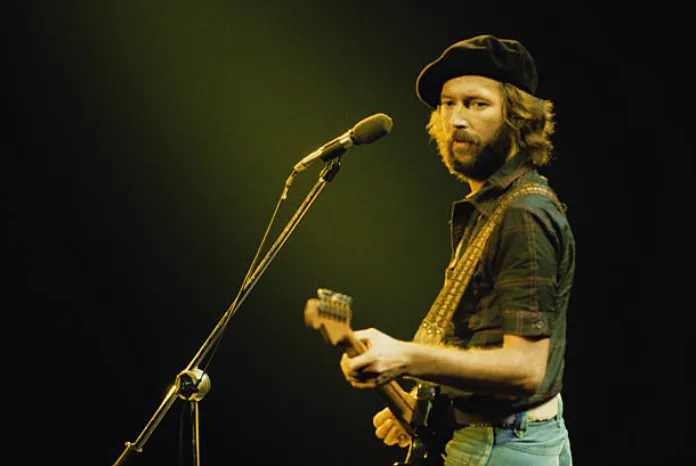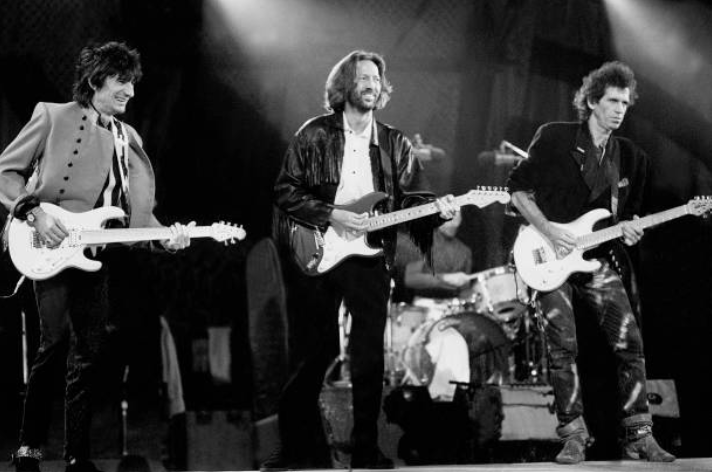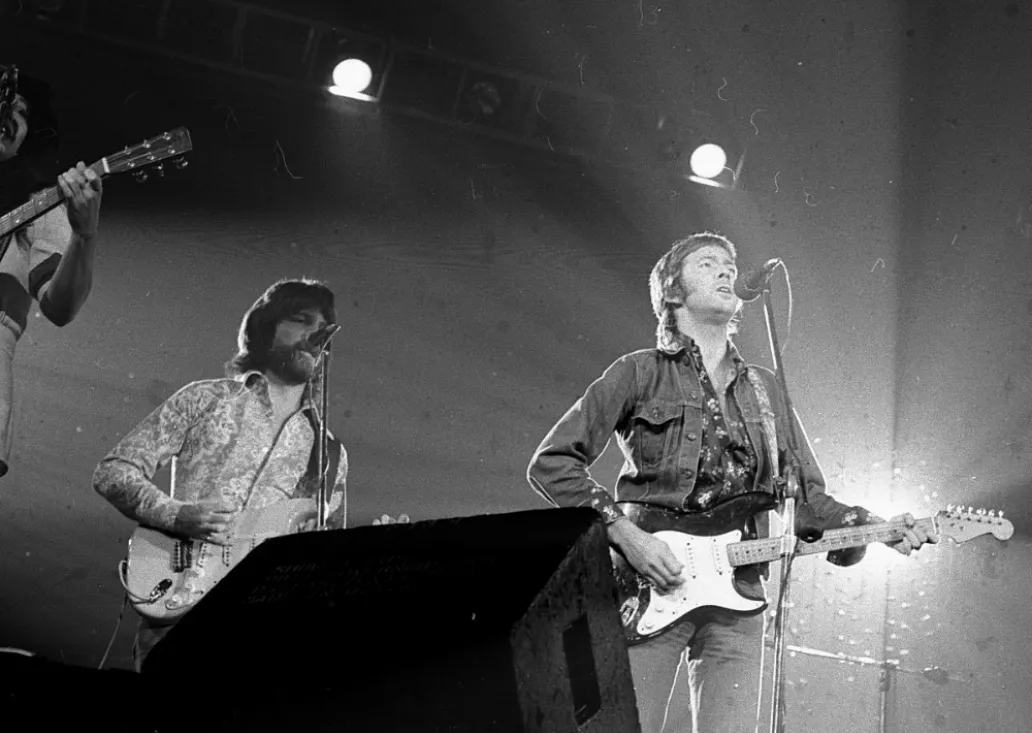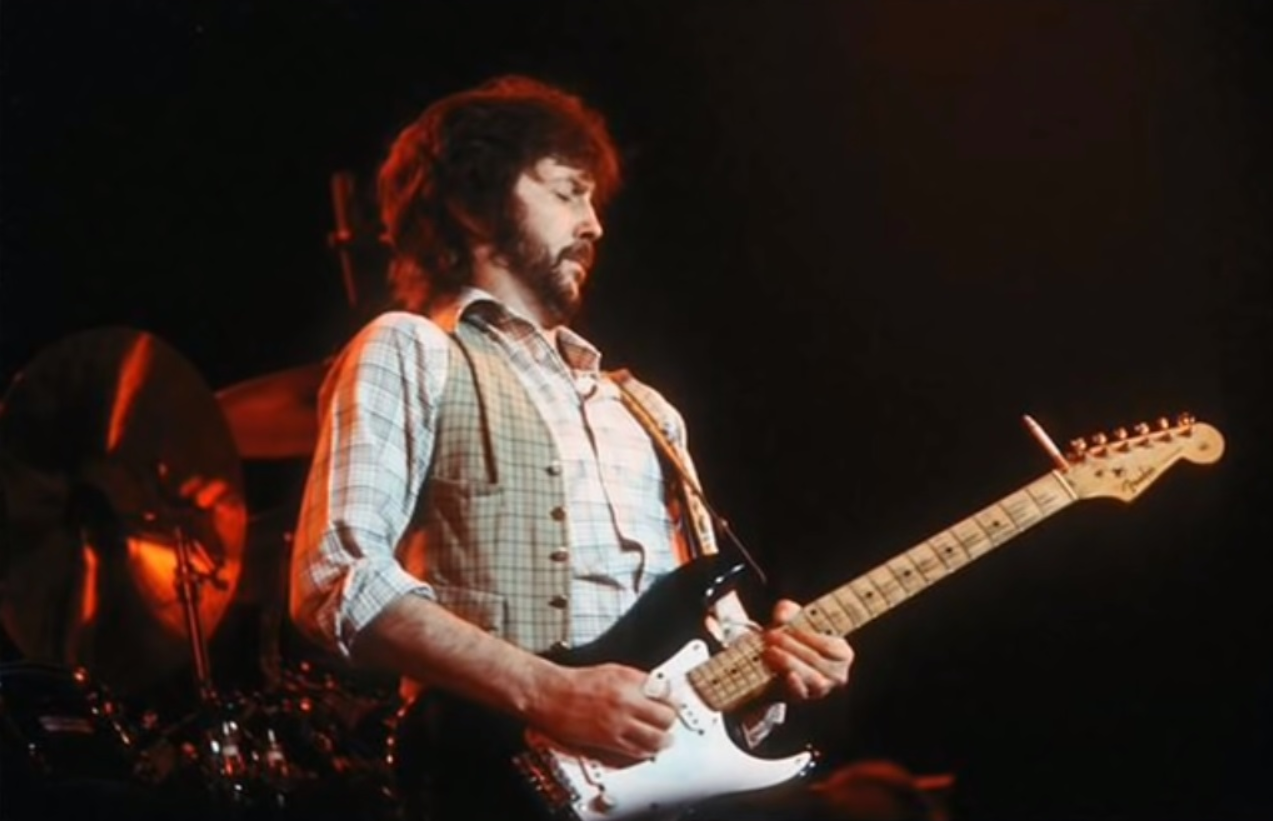"Knock on Wood" by Eric Clapton: A Melodic Journey Through Soul, Blues, and Rock
(watch the video below)
In the vast landscape of music, certain songs stand out not only for their melodic prowess but also for their ability to transcend time, resonating with listeners across generations. One such song is "Knock on Wood" by Eric Clapton, a timeless masterpiece that seamlessly blends elements of soul, blues, and rock. Through its captivating melody, heartfelt lyrics, and Clapton's unparalleled guitar virtuosity, "Knock on Wood" has earned its place as a classic in the annals of music history.
To truly understand the essence of "Knock on Wood," one must delve into its origins and the influences that shaped its creation. The song was originally written by Eddie Floyd and Steve Cropper, two legendary figures in the realm of soul music. It was first recorded by Eddie Floyd in 1966 and quickly became a hit, topping the R&B charts and solidifying its status as a soul classic.

Eric Clapton, known for his unparalleled talent as a guitarist and his eclectic musical influences, was undoubtedly drawn to the soulful allure of "Knock on Wood." Growing up in post-war England, Clapton immersed himself in the blues, soaking up the sounds of artists like Robert Johnson, Muddy Waters, and B.B. King. His deep appreciation for American blues and soul music would later permeate his own musical creations, including his rendition of "Knock on Wood."
At its core, "Knock on Wood" is a testament to the power of simplicity in music. The song's chord progression is relatively straightforward, revolving around a classic I-IV-V blues structure. Yet, within this simplicity lies a wealth of emotional depth and musical nuance.
The song opens with a soulful guitar riff that immediately captures the listener's attention. Clapton's playing is characteristically precise yet imbued with raw emotion, setting the stage for what is to come. As the song progresses, Clapton's vocals take center stage, delivering the poignant lyrics with conviction and soulfulness.
One of the defining features of "Knock on Wood" is its infectious groove. The rhythm section, anchored by a tight drumbeat and punctuated by bursts of horns, propels the song forward with irresistible momentum. Each instrument contributes to the overall texture of the song, creating a rich sonic tapestry that envelops the listener.

Lyrically, "Knock on Wood" explores themes of love, luck, and superstition. The protagonist expresses gratitude for finding love and acknowledges the role that luck has played in their life. The refrain, "I don't want to lose this good thing that I've got," is a poignant reminder of the fragility of love and the need to cherish it.
When Eric Clapton decided to cover "Knock on Wood," he brought his own unique interpretation to the song while staying true to its soulful roots. Clapton's version, released on his 1974 album "461 Ocean Boulevard," showcases his distinctive guitar playing and soulful vocals.
One of the most striking aspects of Clapton's interpretation is his guitar solo. Displaying his trademark blend of technical proficiency and emotional expression, Clapton's solo elevates the song to new heights, serving as a cathartic release of pent-up emotion.
Clapton's vocals are equally compelling, imbuing the lyrics with a sense of longing and vulnerability. His voice effortlessly glides over the melody, infusing each word with heartfelt sincerity. It is a testament to Clapton's versatility as a vocalist that he is able to inhabit the song so completely, despite its origins in a different musical tradition.

Since its release, "Knock on Wood" has left an indelible mark on the world of music, inspiring countless artists across genres and generations. Its enduring popularity is a testament to the song's universal appeal and timeless quality.
In addition to Clapton's rendition, "Knock on Wood" has been covered by a diverse array of artists, ranging from soul legends like Otis Redding to rock icons like David Bowie. Each interpretation brings something new to the table, yet the essence of the song remains unchanged.
Beyond its musical influence, "Knock on Wood" has also had a lasting impact on popular culture. It has been featured in numerous films, television shows, and commercials, further cementing its status as a cultural touchstone.
In conclusion, "Knock on Wood" by Eric Clapton stands as a testament to the enduring power of music to move, inspire, and connect us. From its soulful origins to Clapton's masterful interpretation, the song continues to captivate listeners with its irresistible groove and heartfelt lyrics. As we listen to its timeless melody, we are reminded of the universal themes of love, luck, and superstition that resonate across generations. Truly, "Knock on Wood" is a song that will stand the test of time, continuing to enchant audiences for years to come.
Video
Lyrics
Let's sing along with the lyrics !
I don't wanna lose this good thing that I've got
If I do, I would surely, surely lose a lot
'Cause your love is better than any love I know
It's like thunder, lightning
The way you love me is frightening
Think I'd better knock on wood, baby
I'm not superstitious about you
I can't take no chance
You got me spinning, baby
Baby, I'm in a trance
'Cause your love is better than any love I know
It's like thunder, lightning
The way you love me is frightening
Think I'd better knock (knock) on wood, baby
Ain't no secret that woman is my loving cup
She sees to it that I get it up
Just one touch from her, you know can do so much
It's like thunder, lightning
The way you love me is frightening
Think I'd better knock (knock) on wood, baby
Oh yeah, think I better knock, knock, knock on wood
Think I better knock, knock, knock on wood
Think I better knock, knock on wood
Think I better knock (knock, knock) on wood
Think I better knock (knock, knock) on wood
Think I better knock (knock, knock) on wood, oh
Think I better knock (knock, knock) on wood



